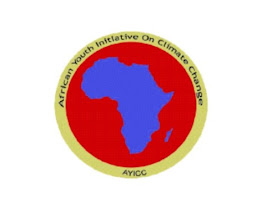Remarks by Achim Steiner, UN Under-Secretary General and UN Environment Programme (UNEP) -Global Alliance for Clean Cook Stoves Public Launch
AYICC Kenya runs a program known as the Rural Energy Enterprise Network (REEN).
REEN’s main mandate is to map out groups working on projects on energy efficiency. This includes firewood stoves, charcoal Jikos, biogas, solar, among many other sources of energy.The REEN program is in partnership with the GTZ in implementing its mandate.The program has also been looking at partnering with UNEP in its Clean Cookstoves program and as such has been closely following its progress............
The Global Alliance for Clean Cook Stoves, launched on Tuesday during the 65th session of the UN General Assembly, is part of the Global Clinton Initiative and spearheaded by the UN Foundation. It aims to cut the estimated 1.6 million to 1.8 million premature deaths linked with indoor emissions from inefficient cook stoves.
Remarks by Achim Steiner, UN Under-Secretary General and UN Environment Programme (UNEP)
Global Alliance for Clean Cook Stoves Public Launch
New York, 23 September
I am delighted to be here for the public launch of the Global Alliance for Clean Cook Stoves.
Its strength is in its purpose, aims and the diverse experience, talents and influence of its members.
A fundamental understanding too, that only by working with local people and communities will real transformative change be achieved.
Advances in information technology or gene therapy or breakthroughs in astrophysics astonish the world.
But it should be equally astonished by the fact that billions of our fellow human beings are cooking in the early 21st century on stoves that are so hazardous that close to two million people--mainly women and children—die each year: let alone those who become ill.
The health impacts are reason enough for the alliance and its objectives.
But inefficient cook stoves also contribute to deforestation and loss of biodiversity.
Only two days ago here in New York Kenya’s Ambassador to UNEP noted that 80 per cent of his fellow citizens are dependent on forests for fuel including cooking.
Meanwhile and by some estimates, 25 per cent of black carbon emissions are linked to inefficient cook stoves.
Black carbon is thought to be making a significant contribution to current climate change—phasing down or phasing out emissions will deliver immediate benefits.
Its presence in the Atmospheric Brown Cloud is also linked with ‘dimming’ and other impacts that may be cutting the productivity of agriculture.
Thus action on inefficient cook stoves is long over due.
And the multiple challenges but also multiple opportunities are precisely why this initiative, spearheaded by the UN Foundation under the umbrella of the Clinton Global Initiative, has attracted so much support.
People often ask what is a Green Economy, how does it echo to the challenges and realities of the developing world?
Well this initiative is a green economy measure—for every dollar invested you are addressing many if not all the Millennium Development Goals and more—generating jobs too.
There have been cook stove initiatives before—some have worked and some have not.
The expertise in this room knows why—and it is this experience and these skills that will make this alliance a success.
Indeed, when I look at the faces out there and the organizations you represent, I seesuccess stories everywhere.
US EPA is partner along with the government of the Netherlands and UNIDO and UNEP among others in the Partnership for Cleaner Fuels and Vehicles—phased lead out of petrol in Africa, and almost everywhere else in around three year.
The UN Foundation and Shell Foundation, partners in for example the Indian Solar Loan project that through working with banks assisted 100,000 people in rural Indiato access solar power.
The African Rural Energy Enterprise Development initiative which includes a successful-- 40 per cent more efficient cook stove project in Ghana-- that has, working with international and local partners including ones in this room, :-
· Built and supplied 50,000 efficient stoves to six regions of the country
· Generated 200 new jobs
· To date assisted in off-setting 15,000 tonnes of C02
The WHO, who with UN and national and local partners, have demonstrated inSouth America alternatives to DDT for malaria control and which is expanding pilots into for example Africa.
The list goes on and I am sorry I cannot mention everyone. But the members of the alliance have enviable track records.
These should deliver extraordinary results in terms of public health; economic benefits and wider environmental improvements.
The target is 100 million improved cook stoves by 2020—given our collective track record, I am sure that this will prove to be a minimum.
Who knows, in a few years time we will be able to dine out—on food cooked on super efficient cook stoves of course-- on the story of how together, in New York in September 2010, we made a rapid and direct difference to the lives of hundreds of millions—if not billions—of people.
And collectively played an important role towards achieving the MDGs and other urgent sustainability goals.
Achim Steiner,
UN Under-Secretary General and UN Environment Programme (UNEP)

Comments
Post a Comment